Directors
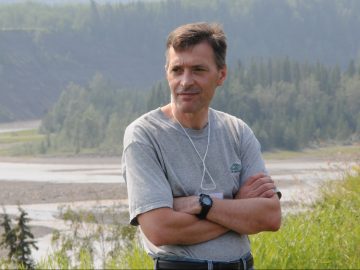
Dr. Roger Beckie
Principal Investigator and Department Head
Department of Earth, Ocean, and Atmospheric Sciences
University of British Columbia
Dr. Roger Beckie is a groundwater hydrogeologist and Professor in Earth, Ocean and Atmospheric Sciences at the University of British Columbia. His scholarly contributions fall in three themes: i) the hydrology and geochemistry of mining waste rock, ii) geochemistry and hydrology of the hyporheic zone of the Fraser River, British Columbia, and iii) geochemistry and hydrology of deltaic aquifers focusing on the Fraser River Delta and arsenic in south Asia. He is problem driven, using laboratory and field studies interpreted with process-based models. He has substantial field experience in both South Asia studying the biogeochemistry of naturally occurring arsenic in groundwater and in the Lower Mainland of British Columbia studying the fate of creosote-derived contamination in anaerobic deltaic aquifers and in the hyporheic zone of the Fraser River. In both of these contexts, a key issue is the effect of a reducing agent on groundwater and sediment geochemistry. The resulting biogeochemical processes in these systems are expected to be broadly similar to those affected by fugitive methane, itself a reducing agent. A key to understanding these systems is an integrated assessment of the sediment and aqueous geochemistry. His group has developed innovative methods to collect representative samples via freezing methods and has considerable experience with field geochemical characterization, and analysis of sediments and trace-element pools using sequential-extraction and microbeam analytical methods. As Department Head, he has experience managing large teams and projects.
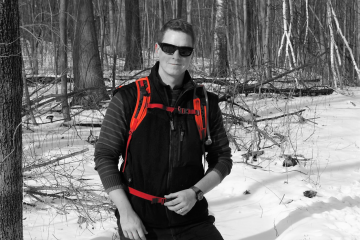
Dr. Aaron Cahill
Director, Energy and Environment Research Initiative
Department of Earth, Ocean, and Atmospheric Sciences
University of British Columbia
Dr. Aaron Cahill is Co-Director of EERI and an expert on fugitive gas migration, fate and impacts on groundwater. A hydrogeologist by training, Aaron received his undergraduate and graduate degrees from the University of Birmingham (UK) before working in industry for several years at an environmental engineering consultancy. After gaining industry experience, Aaron returned to academia where he attained his Ph.D. in Environmental Engineering from the Technical University of Denmark in 2013 through research concerning the potential risks to groundwater posed by leakage of CO2 from geological carbon sequestration. Following his Ph.D. research Aaron undertook a 3 year Postdoctoral Fellowship at the University of Guelph (Canada) researching migration, impacts and fate of fugitive methane from energy resource development in groundwater. Aaron joined UBC EOAS in summer 2016 as a Research Associate where he founded the UBC EERI in collaboration with Professor Beckie and now serves as its Co-Director.
Management
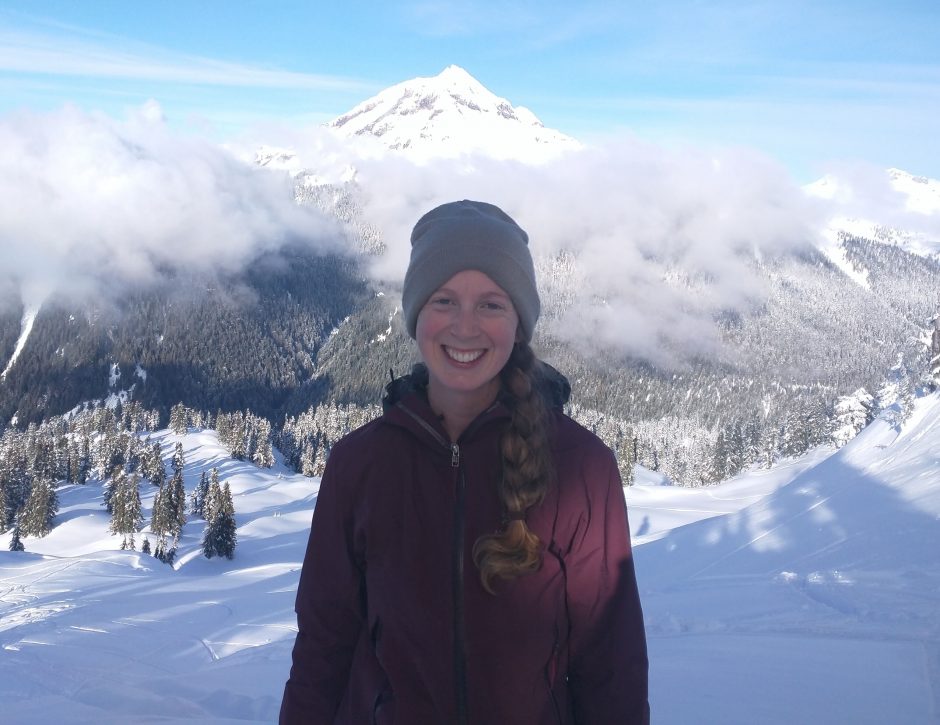
Bethany Ladd, M.Sc.
Project Manager
Department of Earth, Ocean, and Atmospheric Sciences
University of British Columbia
Bethany Ladd is the project manager for EERI and has a background in hydrogeology with a focus on dissolved gases in groundwater. Bethany received her undergraduate degree in Geology-Biology from Brown University, and went on to complete a Master of Science in hydrogeology at the University of Calgary. Prior to arriving in Calgary, she worked as a Hydrologic Technician for the US Forest Service, gaining experience in water resource management. Following her Masters, she worked for two years as a Research Associate in the hydrogeology group at the University of Calgary, coordinating large interdisciplinary research projects and performing hydro-geochemistry research.
Key Scientists
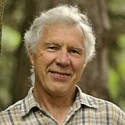
Andy Black
Professor
Departments of Applied Biology and Soil Science
University of British Columbia
Dr. Andy Black is a Professor in the Faculty of Land and Food Systems and leads the Biometeorology and Soil Physics Group at UBC, Vancouver. He is actively involved in research in energy, water and carbon balances of temperate and boreal forests. For over 45 years, his research team has conducted research on the effects of weather on turbulent exchange in and above forest canopies. In the mid-1990s, he was a member of the science committee of the Boreal Ecosystem-Atmosphere Study and a member of a group that laid the foundation for the current international network of CO2/H2O flux sites (Fluxnet). He played a major role in the establishment of the Fluxnet Canada Research Network, a network of eddy covariance flux towers across Canada to study the effects of climate change and disturbance on the carbon balance (and other greenhouse gases) of forest and wetland ecosystems.
Sean Crowe
Assistant Professor
Department of Microbiology and Immunology
University of British Columbia

Steve Hallam
Professor
Department of Microbiology and Immunology
University of British Columbia
Dr. Steven Hallam is a University of California Santa Cruz and MIT trained molecular biologist, microbial ecologist, entrepreneur, and innovator with over 20 years experience in field and laboratory research at disciplinary interfaces. He is a Professor in the Department of Microbiology and Immunology, Canada Research Chair in Environmental Genomics and a Leopold Leadership Fellow. Steven directs the ECOSCOPE Network an NSERC CREATE industrial stream training program and research cluster focused on microbial biotechnology innovation. His current academic research intersects microbial ecology, biological engineering and big data science with specific emphasis on the creation of functional screens and computational tools that reveal hidden metabolic powers of uncultivated microbial communities.
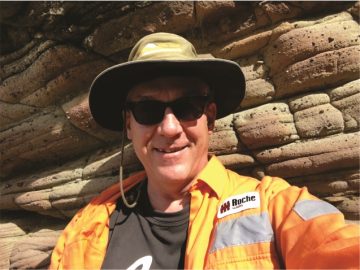
Dirk Kirste
Associate Professor
Department of Earth Sciences
Simon Fraser University
Associate Professor Dirk Kirste is an aqueous geochemist at Simon Fraser University whose research is primarily directed towards understanding the processes controlling the composition of groundwater and surface water. His research involves both lab and field based work investigating the chemical and isotopic composition of water, minerals and gases. By recognizing and using variations in the chemistry he is able to address problems in our environment, in characterizing and predicting the effects of climate change and in resource exploration and evaluation. He applies a broad range of techniques including: developing field based sampling and monitoring strategies; applying different analytical methods; designing lab based experimental procedures; and, developing and applying computer simulations.
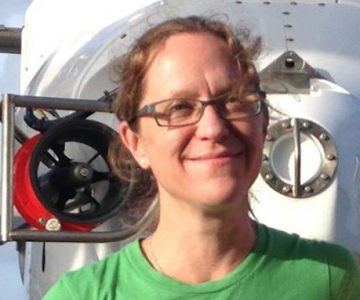
Rachel Lauer
Assistant Professor
Department of Geoscience
University of Calgary
Dr. Rachel Lauer is an Assistant Professor in the Geoscience Department at the University of Calgary. Her research focuses on bridging the gap between geophysical observations and measurements (e.g. seismological, geodetic, temperature, pressure data) and the fundamental processes that govern the production and movement of subsurface fluids. Dr. Lauer’s areas of expertise include developing meaningful predictive models of fluid flow, subduction zone hydrogeology, and more recently, using electrical resistivity to monitor gas migration in the subsurface.
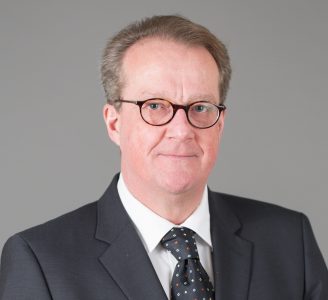
Bernhard Mayer
Professor
Department of Geoscience
University of Calgary
Professor Bernhard Mayer is a nationally and internationally known isotope tracer geochemist. He combines aqueous, gas and isotope geochemical approaches to
determine the sources, the transport and the fate of methane, ethane and of redox-sensitive species such as sulfate and nitrate in subsurface environments. Dr. Mayer’s research applies innovative scientific approaches to improve recovery of fossil fuels with the goal to reduce environmental impacts. He has (co-)authored more than 145 papers in international refereed journals and 15 book chapters on a wide variety of geochemical topics including shale gas development, geologic CO 2 sequestration, and water sources in the Athabasca oil sands. His expertise has garnered him a member appointment on the national scientific review panel on “Harnessing Science and Technology to Understand Environmental Impacts of Shale Gas Extraction” coordinated by the Council of Canadian Academies (CCA). He currently (2017-18) holds an Annual Killam Professorship at the University of Calgary. The isotope-based tracer technologies employed by Dr. Mayer can be effectively used for fingerprinting methane sources and leakage pathways in association with the development of unconventional energy resources and are a critical tool for assessing the environmental impact of shale gas development in Canada.
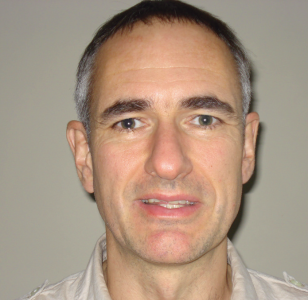
Ulrich Mayer
Professor
Department of Earth, Ocean and Atmospheric Sciences
University of British Columbia
Uli Mayer is a professor of hydrogeology and low temperature aqueous geochemistry. His main area of expertise lies in multicomponent reactive transport modeling and vadose zone processes. Research areas of interest include environmental aspects of mine waste, the long-term geochemical stability of deep sedimentary and crystalline rock environments, natural attenuation of organic contaminants and fugitive gas emissions related to oil and gas development.
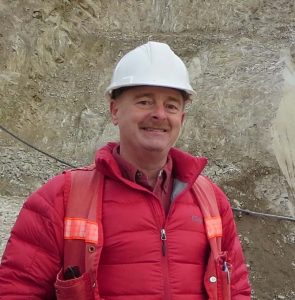
Dwayne Tannant
Professor
School of Engineering
University of British Columbia – Okanagan
Dr. Dwayne Tannant is a professor in the School of Engineering at the University of British Columbia, Okanagan campus. His expertise is in rock mechanics, geotechnical engineering, and engineering geology with emphasis on applied research associated with civil, mining, and petroleum applications. He has extensive experience with terrestrial photogrammetry and using drones as a platform to acquire field data. Recent research projects have involved geohazard identification and analysis, rock support design, and fracking.
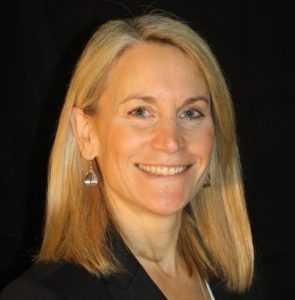
Laurie Welch
Hydrogeologist
BC Oil and Gas Commission
Dr. Welch is the subject matter expert in hydrogeology at the BC Oil and Gas Commission (BC OGC). Working closely with other technical experts in the Drilling and Production Engineering, Reservoir Engineering, and Geology Departments at the BC OGC, her focus is on the multi-disciplinary groundwater protection aspects of oil and gas well drilling, completion, and abandonment. On this topic, she is involved in regulatory and process enhancement initiatives, development of technical procedures, and research collaboration. Through her research involvement, Dr. Welch works to identify and frame specific research needs related to groundwater and the oil and gas sector, inform technical and regulatory aspects of research programs, provide contributions to research and publications, and facilitate the extension of scientific knowledge to practical applications.
Staff and Associates
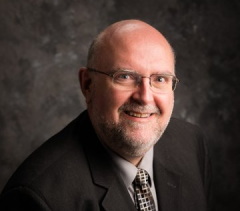
Tom Balke
Associate Director, Strategic Initiatives
University of British Columbia
Tom Balke is the Associate Director, Strategic Initiatives within UBC’s Faculty of Science. His involvement includes developing new strategic initiatives, bringing together industry, researchers, government, and funding partners. His role within UBC EERI includes helping to facilitate and develop the overall initiative. In addition to his work with the UBC Energy and Environment Research Institute, Tom is involved with UBC’s Carbon Initiative, the Bradshaw Research Initiative for Minerals and Mining, and Michael Smith Laboratories.
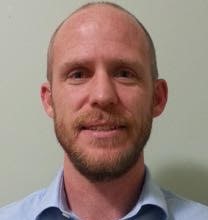
Iain Hawthorne
Research Technician
Independent
Dr. Iain Hawthorne completed his Ph.D. in Geological Sciences with the Department of Earth Ocean and Atmospheric Sciences at the University of British Columbia. His primary interest is using gas flux measurement systems to quantify greenhouse gas emissions and water fluxes from forested and agricultural ecosystems.
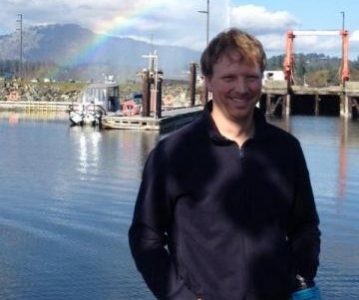
Niko Finke
Research Associate
Department of Microbiology and Immunology
University of British Columbia
Dr. Niko Finke is an earth system scientist with a strong background in geochemistry, microbiology, and ecology. His primary research interests lie at the intersection of these fields, particularly where microbial ecology and evolution influence, and are influenced by, biogeochemistry.
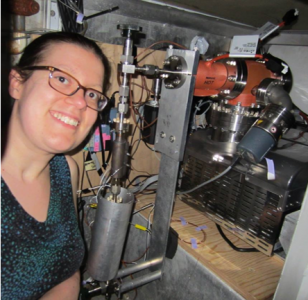
Cara Manning
Postdoctoral Fellow
Department of Earth, Ocean, and Atmospheric Sciences
University of British Columbia
Dr. Cara Manning is a postdoctoral fellow in hydrogeology and oceanography at UBC. She received a BSc Honours in Chemistry and Earth and Ocean Sciences from the University of Victoria and a PhD in Chemical Oceanography from the Massachusetts Institute of Technology and Woods Hole Oceanographic Institution. Her research interests include developing and applying new methods to measure gases in the environment. She has used new field-deployable methods at the saturated zone site to measure gas composition in groundwater and soil gas in order to determine the tracer transport in real time.
Students
PhD Students
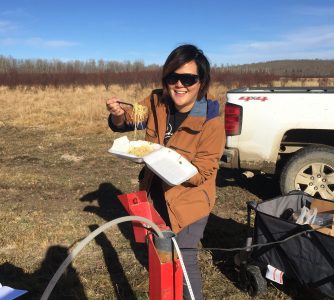
Jessie Chao
University of British Columbia
Department of Earth, Ocean, and Atmospheric Sciences
Jessie is a PhD candidate in Hydrogeology at UBC, where she’s one of the coordinators of the Hudson’s Hope Saturated Site. Her research interest is the migration and fate of fugitive natural gas in shallow groundwater, using field experiment and model simulations.
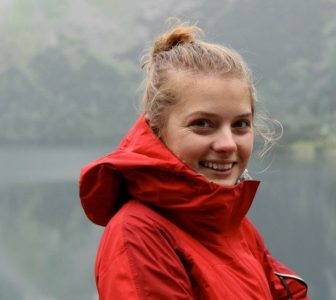
Olenka Forde
University of British Columbia
Department of Earth, Ocean, and Atmospheric Sciences
Olenka is a PhD student in the Hydrogeology group at UBC. Her thesis investigates the mechanisms and geochemical impacts of fugitive gas migration related to shale gas development. She worked at three field sites and completed lab work to monitor and identify fugitive gas. Olenka uses soil gas isotopes, concentrations and effluxes to characterize the fate and transport of fugitive gas. She also works on gaseous and aqueous reactive transport modeling using MIN3P and PHREEQC to further characterize data collected from field sites.
MSc Students
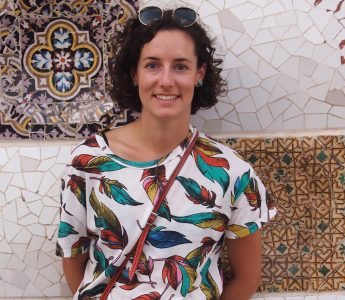
Elyse Sandl
University of British Columbia
Department of Earth, Ocean, and Atmospheric Sciences
Elyse has a Bachelor’s of Science in Geology from Queen’s University, and five years of technically focused groundwater consulting experience in both the mining and environmental sectors. This work has been carried out to support Environmental Impact Assessments, Geotechnical Site Investigation, and mining programs across British Columbia. Elyse’s masters research focusses on analyzing attribute data for natural gas wells with reported fugitive methane detections in British Columbia. When not working or studying, Elyse enjoys getting out to the mountains to hike, camp and climb.
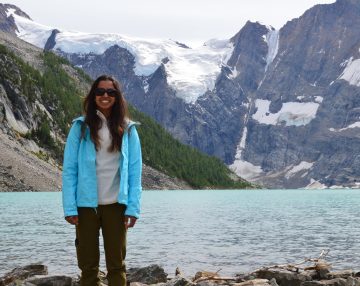
Julia Valentina Soares
University of British Columbia
Department of Earth, Ocean, and Atmospheric Sciences
Julia received her undergraduate degree in Environmental Geoscience from the University of Alberta. Her masters research focuses on surface efflux, vadose zone and soil gas processes at the Hudson Hope Saturated Site.
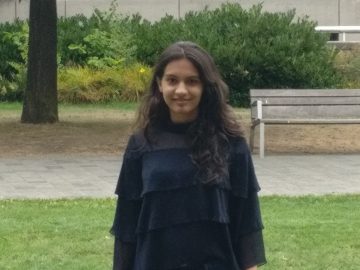
Chitra Chopra
University of British Columbia
Department of Earth, Ocean, and Atmospheric Sciences
Chitra Chopra is a master’s student majoring in Atmospheric Science at UBC. She works with the UBC Biometeorology and Soil Physics group. She received her bachelor of technology degree in Engineering Physics from the National Institute of Technology Calicut, India. Her master’s research focuses on monitoring the release of fugitive gas using the eddy covariance technique, and working with flux footprints and their inversions to characterize the magnitude and location of the leak, at the Hudson’s Hope field research station.
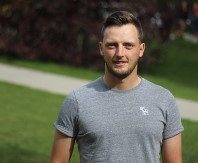
Tim Cary
University of Calgary
Department of Geoscience
Tim received an undergraduate degree in Physics from the University of Oxford and went on to complete a Geophysics undergraduate degree at the University of Calgary. The focus of his Master’s is monitoring and detecting fugitive methane using time lapse seismic and resistivity techniques.
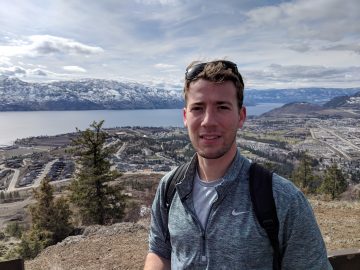
Max Goetz
University of British Columbia
Department of Earth, Ocean, and Atmospheric Sciences
Max received his undergraduate degree in Earth & Planetary Sciences from McGill University. He has four years of geoscience experience in the mining industry, primarily working as a site geologist/hydrogeologist at a copper porphyry-skarn mine in New Mexico. Max will be working on the planning, implementation and data analysis of the Monitoring Well Installation Project (MWIP).
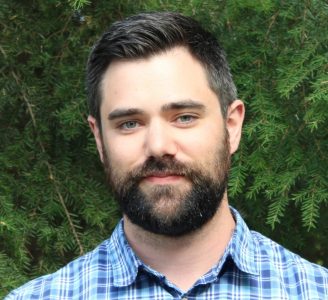
Andrew Allen
Simon Fraser University
Department of Earth Sciences
Undergraduate Students
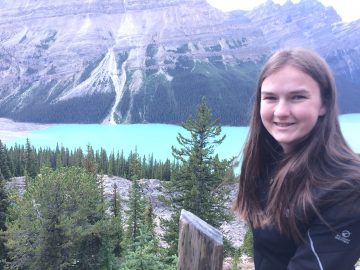
Emily Prystupa
University of British Columbia
Department of Earth, Ocean, and Atmospheric Sciences
Emily is a Honours Environmental Science student who worked on this project as a student researcher over the summer. She is now doing her Honours thesis as part of the project on sampling of domestic well water quality in the context of the Hudson’s Hope region.
